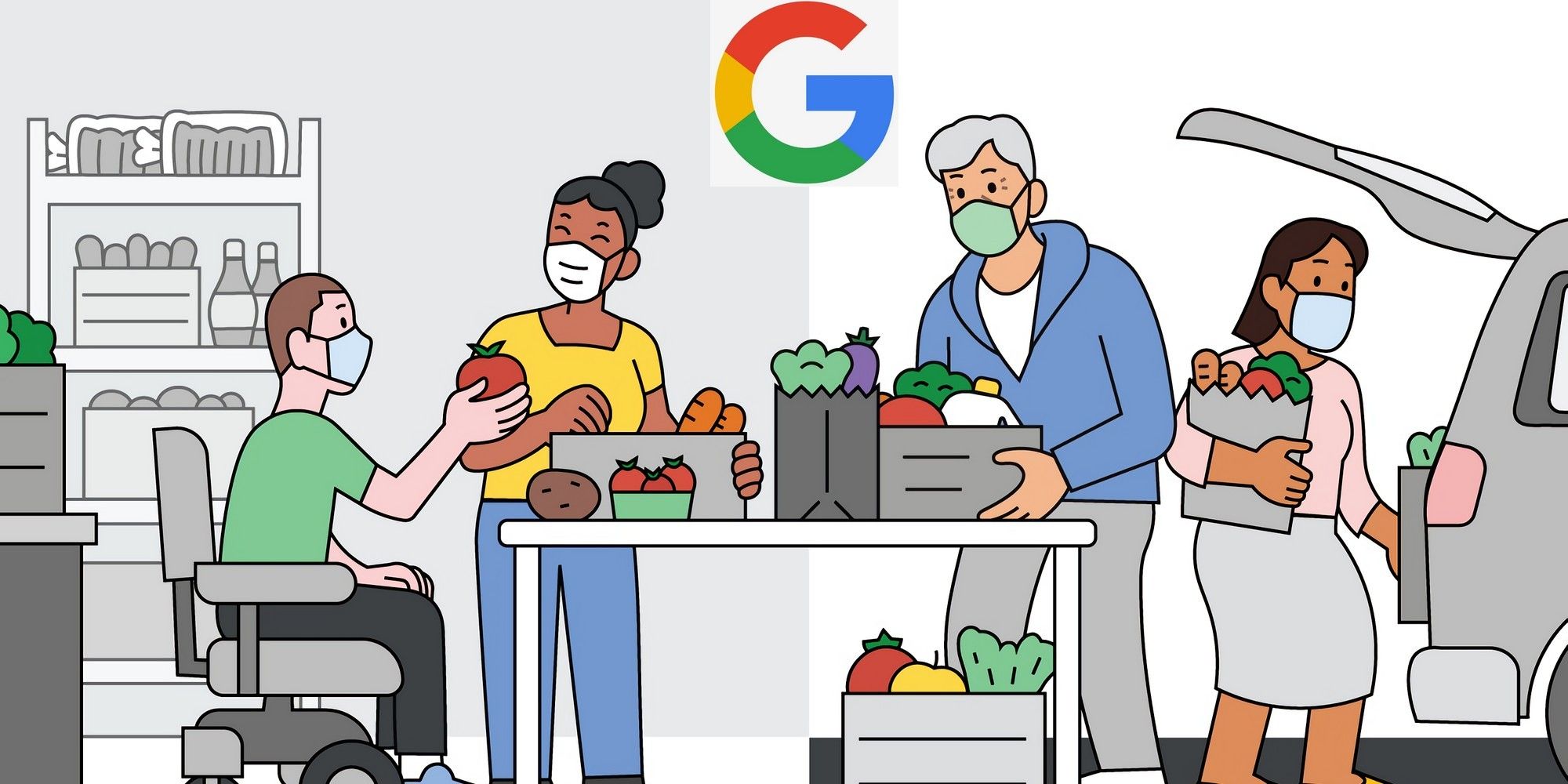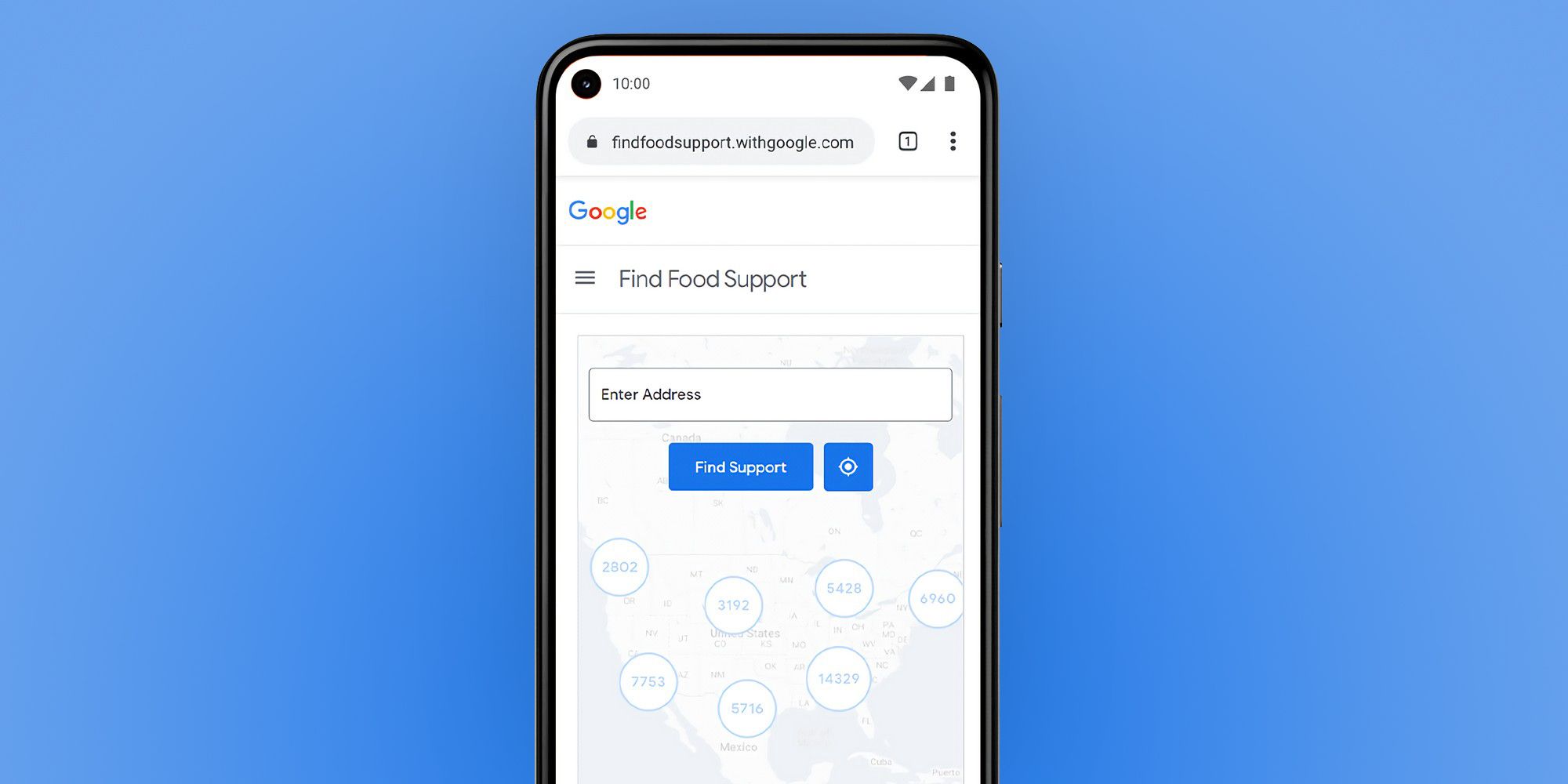Google has launched a dedicated website aimed at helping people in need to more easily locate food support sites and meal banks. The coronavirus pandemic has only exacerbated food insecurity, but the search giant has been doing its bit to help ease the after-effects ever since the pandemic started to affect lives. For example, the company committed north of $800 million towards helping small businesses, supported the dissemination of critical information, and allowed academic institutions and researchers access to its cloud resources for COVID-19 related work.
In April of last year, Google started releasing COVID-19 Community Mobility Reports to log the progress that has been made at tackling the pandemic and launched a COVID-19 Global Case Mapper to offer up-to-date visualizations of the pandemic's spread across the world. For the masses, Google started surfacing life-saving information from local health authorities to better inform people about vaccines and general queries related to the spread of coronavirus. In partnership with Apple, Google also created the Exposure Notifications Express to alert of potential exposure to the virus.
Now, Google wants to help people struggling with food insecurity in the wake of the pandemic. Google has created the Find Food Support website that makes it easier to find the requisite support resources. The website — which can be accessed at findfoodsupport.withgoogle.com — will help people locate the nearest food bank, food pantry, or a site where they can pick up a meal that is part of a school lunch program.
Google Helping To Find Resources As Well
Google has partnered with associations such as No Kid Hungry, the United States Department of Agriculture (USDA), and Food Finder to create a database of food support sites on its website. Right now, the platform lists over 90,000 locations across 50 states in the U.S. where people can get help with their food insecurity problems. A few months ago, Google launched a similar initiative that sought to help people find vaccination sites and a coronavirus screening website for assessing symptoms back in 2020. The support website is already live and employs a Google Maps locator tool to help people reach the nearest food support locations. Users are required to enter their location in the search bar of the map and then select from the locations that pop up in the form of blue bubbles. The website also lists food support hotlines, benefit guides on a per-state basis, and details on how good Samaritans can lend a helping hand and join the initiative.
To make things easier, the website has categorized the food support information based on target groups, such as seniors, families with children, and military families. For example, senior citizens in need of food assistance will get access to resources from the Senior Farmers' Market Nutrition Program, Meals on Wheels, and Commodity Supplemental Food program. Families with vulnerable children will find support information to contact the Special Supplemental Nutrition Program for Women, Infants, and Children (WIC) and Pandemic Electronic Benefit Transfer (P-EBT). Additionally, when people search for terms such as “SNAP benefits” or “Food assistance” using Google, they will be guided to support pages where they can find details including national and state eligibility requirements and application criteria for the Supplemental Nutrition Assistance Program (SNAP).
Google says that a particularly worrying outcome of the pandemic is the closure of schools, which has multiplied the food insecurity issue for children by roughly five times. They are not the only ones affected, however, with Google also highlighting how the pandemic has impacted on people with disabilities, minority communities, and those without a college degree. In fact, Google says that every fifth family has reported some form of food insecurity woes, citing findings from the Military Family Advisory. While the problem is very real, the sentiments of social honor often prevent affected people from seeking the necessary assistance from food banks and other support avenues, so hopefully Google's latest tool will help a little.
Source: Google


